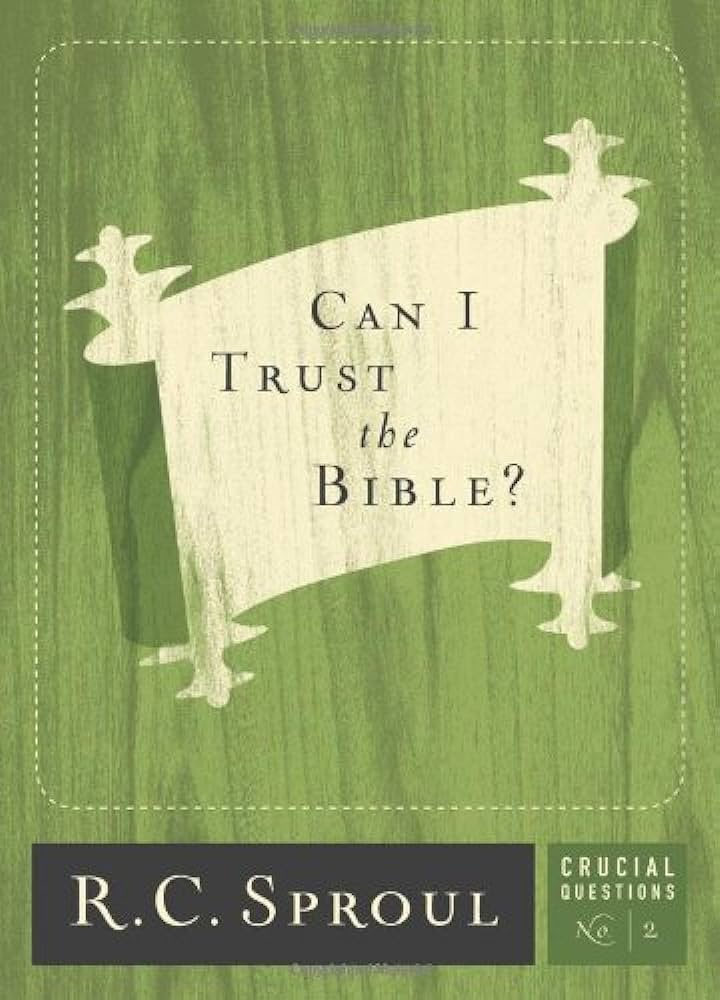February 22, 2024
Book Recommendation: Can I Trust The Bible by R.C. Sproul

“The issue of the Bible’s reliability is crucial. It is via the Scriptures that the church historically claimed to understand matters of faith and life, from God’s creation of all things out of nothing to the significance of the life, death, resurrection, and ascension of Jesus Christ to the ultimate consummation of all things toward which history is moving. If the Bible is unreliable in what it teaches about these things, the church is left to speculate and has nothing of value to speak to the world”. – R.C. Sproul
Here are two of the most important questions of the Christian faith: Is the Bible true? Can we trust it?
And now there is a book about how we can have confidence in it, from the late theologian and apologist R.C. Sproul. In light of his extensive study, this book offers not only a reason to believe that the Bible is the Word of God, but in fact how we can really know it is.
In this book, he tackles some of the common objections and criticisms of the Bible and offers reasoned, nuanced and satisfying responses rooted in his intimate knowledge of matters both theological and biblical.
If you are a regular Bible reader or just a curious layman and are looking for help in knowing why you can continue to trust God’s Word above others, look no further. This book will be a great resource for you.
This book also reminds us that, in the end, the Bible’s authority is not tied inextricably to our limited human powers of reasoning, but to the faithfulness of the God whose words this book documents. The Bible is the book we need if we are to come to a clear-eyed appreciation of what it means to be a Christian.
The final chapter of this book takes up the crucial subject of ‘How to Interpret the Bible’. There are three principles: (1) Use good grammatical-historical exegesis, which means respecting the linguistic forms in Scripture and the historical contexts in which they were first written down; (2) The literary forms in which Scripture is written demand certain types of interpretation. Respect the forms of Scripture; (3) Let Scripture interpret Scripture, which is compatible with the first two principles since you seek to allow the Bible to respect historical situations and what it would have itself said about the situation you’re studying. Finally, make sure critical analysis doesn’t undermine the authority of the Bible or fly in the face of explicit affirmations it makes.
If you’ve been wrestling with doubts about the Bible’s reliability, or its authority, do yourself a favour by getting a copy of this short book (only 68 pages) and it’s currently free on Kindle. This book will bring clarity and provide insight to the perennial questions that many people have been asking. His Christ-centred approach to all of Scripture will enlighten you with fresh perspectives on the claims of Christianity as well as on the claims of Christ.
